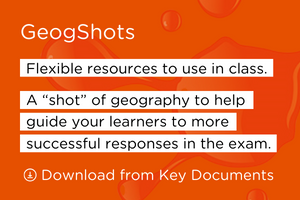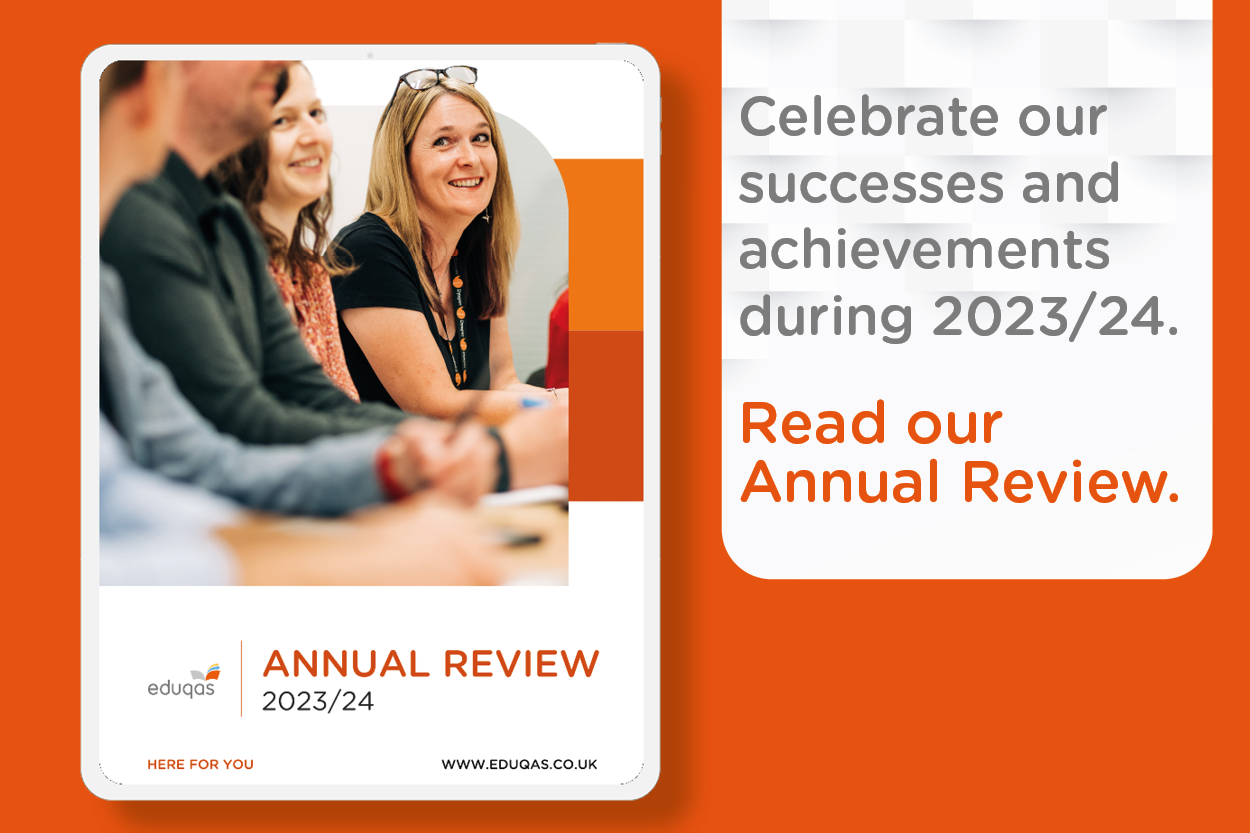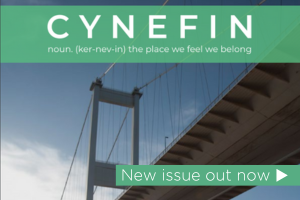GCSE B Geography
Fieldwork Guidance for 2024 onwards is now available in the Key Documents section below.
Check out our Geog Shots, Blended Learning & Resources Audit and Key Terms documents also now available in the tabs below.
Issue 3 of our new GCSE and A Level Geography Cynefin magazine is out now, with topical articles and exam updates for both courses relevant for the current exams and your teaching moving forward.
Want to borrow high quality weather measuring equipment for free? Find out about the Royal Meteorological Society Borrow an Instrument scheme here.
More and more teachers are choosing Eduqas – find out why!
Interested in switching? Download our free Guide to switching for everything you need to know.
Choose Eduqas and you’ll benefit from:
- Geographical enquiry will engage, challenge and extend learners to ‘think like a geographer’
- By posing questions and investigating concepts and issues, students will develop the ability to
think both creatively and scientifically ‘like a geographer’ - The design of the fieldwork component allows flexible planning by teachers to use favourite
fieldwork contexts and locations - Focus on understanding concepts and issues rather than knowledge of case studies
- Each exam question focuses on a single assessment objective
Need further information?
You can also find out more about our package of support including free teaching and learning resources, direct access to subject-specialists, expert-led CPD, and regional support team on our 'Switch to Us’ pages.
Eduqas GCSE Geography B aims to enable learners to think ‘like a geographer’. That is to say, learners will develop the skills necessary to conduct framed enquiries in the classroom and in the field in order to develop their understanding of specialised geographical concepts and current geographical issues. By following this specification learners will achieve the following objectives:
- develop the ability to think creatively, for example, by posing questions that relate to geographical process and concepts that include questioning about spatial pattern and geographical change.
- develop the ability to think scientifically by collecting and recording appropriate evidence from a range of sources, including fieldwork, before critically assessing the validity of this evidence and synthesising their findings to reach evidenced conclusions that relate to the initial aim of their enquiry.
- develop the ability to think independently by applying geographical knowledge, understanding, skills and approaches appropriately and creatively to real world contexts.
In so doing they should appreciate that geography can be ‘messy’ i.e. that real geography does not always match typical or predicted outcomes.
Eduqas GCSE Geography B adopts a distinctive problem solving approach to the study of interactions between people and the environment. By following this course learners will develop skills of interpretation, analysis and evaluation when they collect primary data and are presented with reported evidence and information. Those following the course will become critical learners as they consider the strengths and limitations of this data and evidence.
Eduqas GCSE Geography B also requires learners to consider the points of view of those who have a vested interest when they are affected by contentious geographical change. Learners will become informed and reflective citizens when they consider a range of viewpoints, values and attitudes which are held by stakeholders on a number of key geographical issues. By analysing the evidence and viewpoints learners will develop the ability to solve problems and justify their decisions. In this way, Eduqas GCSE Geography B enables young people to become globally and environmentally informed and thoughtful, enquiring citizens.
Eduqas GCSE Geography B develops and extends learners knowledge of locations, places, environments and processes, at a range of different scales. Learners who follow this qualification will build upon their locational knowledge acquired during key stage 3. This specification provides opportunities for learners to understand more about the distinctive human and physical features of the UK. It also builds knowledge of at least one Low Income Country at least one Newly Industrialised Country, as well as the wider world, the challenges it faces and their place within it.
There are no previous learning requirements for this specification. Any requirements set for entry to a course based on this specification are at the school/college’s discretion.
This specification provides a suitable foundation for the study of A level geography
In addition, the specification provides a coherent, satisfying and worthwhile course of study for learners who do not progress to further study in this subject.
- The only specifications which take a singular approach to the assessment objectives meaning higher tariff questions in our assessments focus on understanding concepts and evaluating issues rather than knowledge of case studies. This results in more time for teaching geographical enquiry and less time teaching case studies.
- An unique approach to fieldwork – providing methodological and conceptual frameworks for field enquiries in each assessment series, designed to help students move from relying on framed enquiries to becoming independent learners.
- We offer a balance of familiar topics as well as contemporary geographical concepts, supported by textbooks and free digital resources.
Important information, past papers, marking schemes, entry/amendment uploads & make post-results enquiries.
We offer an extensive range of free digital educational resources.
Access interactive units including general data, exam questions, marking schemes & examiner comments.
Grade boundaries are the minimum number of marks needed to achieve each grade.
 |
 |
Discover FREE Digital Resources!
Unlock your learners’ potential with an impressive range of FREE digital resources, teaching tools and materials.
WJEC/CBAC ENDORSED TITLES
|
Title |
ISBN |
Author/s |
| Eduqas GCSE (9-1) Geography B Second Edition | 9781510477544 | Andy Owen, Alan Brown, Val Davis, Bob Digby, Andy Leeder |
| WJEC Eduqas GCSE (9–1) Geography B | 9781471857874 | Andy Owen, Andy Leader, Alan Brown, Bob Digby |
| Eduqas GCSE Geography Fieldwork | 9781912190027 | Andy Owen |
| Geographical Skills and Fieldwork | 9781471865992 | Steph Warren |
| WJEC Eduqas GCSE (9–1) Geography B Dynamic Learning Package | 9781471877728 | N/A |
| Eduqas GCSE (9-1) Geography B Second Edition Student eTextbook | 9781510476677 | Andy Owen, Alan Brown, Val Davis, Bob Digby, Andy Leeder |
| WJEC Eduqas GCSE (9–1) Geography B Workbook | 9781510453548 | Andy Owen |
| My Revision Notes: WJEC Eduqas GCSE (9–1) Geography B Student eTextbook | 9781398314566 | Stuart Currie |
WJEC/CBAC NON-ENDORSED TITLES
|
Title |
ISBN |
Author/s |
| My Revision Notes: WJEC Eduqas GCSE (9–1) Geography B | 9781471887376 |
Stuart Currie |
Access a collection of interactive units that bring together a number of elements including general data, exam questions, their marking schemes and examiner comments, which will lead you through a review of exam questions.







